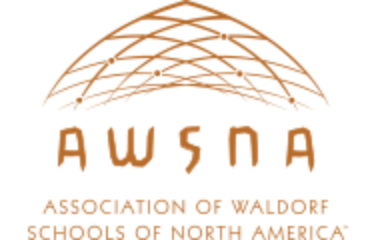
A Community for Growth and Belonging
Cedarwood is more than a school—it’s a community that comes together with intention, care, and a shared commitment to guiding the future. From all across the city—Northeast Portland to Lake Oswego, Newberg to St. Johns—families make their way here because they value an education built on relationships, where learning extends beyond the classroom and into the heart of everyday life.
What visitors notice first about Cedarwood is the warmth—an atmosphere of love and belonging that comes from families who care for one another. Parents gather in the courtyard after dismissal and children play together long after the school day ends. Every family brings their own strengths and gifts, weaving together a vibrant and supportive community.
At Cedarwood, education is a shared journey—one where we lift each other up, celebrate each child’s growth, and create a space where every family belongs.
Watch our YouTube series Cedarwood Stories: The People Who Help Us Grow to learn more about our community.
The Foundation of Cedarwood’s Waldorf Journey
From the very beginning, our story has been one of connection and shared vision. In the winter of 1996, a small group of parents came together to create a Waldorf school in West Portland. What began as a conversation soon grew into a vibrant learning community rooted in tradition, creativity, and connection. Learn more about Cedarwood’s history.
Where History Meets Innovation in Southwest Portland
Situated in the historic Lair Hill neighborhood, our Southwest Portland campus reflects our approach to education—a blend of historical tradition and modern innovation. Our building combines sustainably crafted timber features with contemporary, resilient design, seamlessly integrating original 20th-century structures with eco-conscious architecture.
Just five minutes from downtown Portland, our school is surrounded by lush green spaces, including Lair Hill Park, the beautiful outdoor space we share with the City of Portland. As stewards of this land, we embrace the opportunity for our students to connect with nature, play, and learn in harmony with their environment.
A Living Education: Waldorf for the Modern World
We value a contemporary approach to Waldorf, in which new ideas, practices, and styles are incorporated to support and enrich the student experience from early childhood programming through the completion of eighth grade. Our pedagogy is forward-facing, reflective, and responsive to the demands and expectations of today’s world, while maintaining our core vision — to weave together the arts, academics, and movement with a reverence for the developing child.
Now more than ever, we are committed to meeting our students with an openness to possibility, providing time and tools for developing resilience and teaching them skills that can be used to turn challenges into opportunities.
Cedarwood’s Mission
Cedarwood Waldorf School brings Waldorf Education to life and strives to instill a love for learning. Our curriculum weaves together the arts, academics and movement, with a reverence for the developing child. We nurture our children’s spirituality, cultivate their ability to think imaginatively, and inspire them to seek the truth.
Our Vision
Cedarwood’s true purpose is to create a collaborative community that strives to learn how we as human beings can create a better world.
Accreditation
Cedarwood Waldorf School is a fully accredited member of the Northwest Association of Independent Schools (NWAIS), the Association of Waldorf Schools of North America (AWSNA) and the Waldorf Early Childhood Association of North America (WECAN).
Anti-Discrimination Policy
We admit and welcome students of any race, color, national and ethnic origin to all the rights, privileges, programs, and activities generally accorded or made available to students at Cedarwood. We do not discriminate on the basis of race, color, national and ethnic origin in administration of our educational policies, admissions policies, tuition assistance program, and athletic and other school-administered programs.



